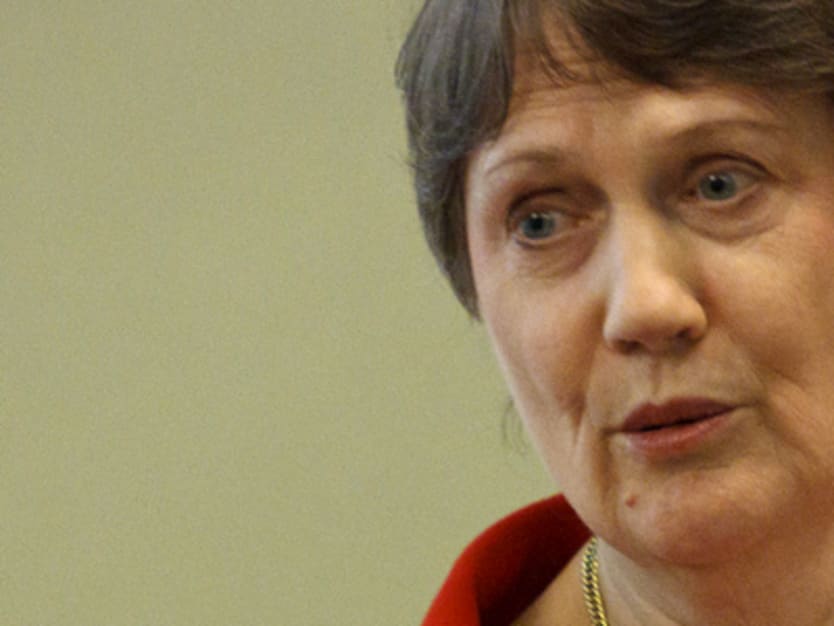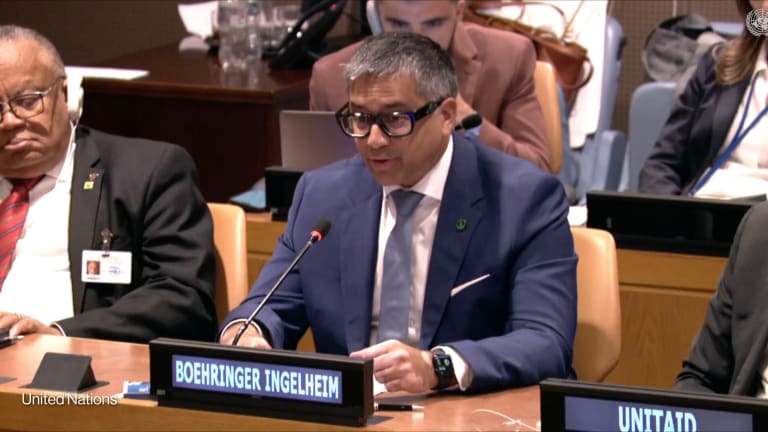
The way U.N. Development Program Administrator Helen Clark sees the future, the fight against noncommunicable diseases can only be won by making sure it is on everyone’s agenda.
“By placing NCDs permanently on the global development agenda, people’s lives, opportunities, and future prospects will improve – thereby advancing sustainable human development overall,” Clark said Feb. 11 at the London launch of an NCD-themed edition of The Lancet magazine, which takes stock of international efforts to reduce NCD prevalence since a landmark 2011 gathering of experts on the sidelines of the United Nations General Assembly.
In broad strokes, Clark outlined the development community’s role in reducing NCD-related deaths 25 percent by 2025. The most common NCDs are heart disease, stroke, cancer, chronic respiratory diseases and diabetes.
Development actors can help countries provide better health services, she said, by finding ways to integrate NCDs into development planning, strengthen the capacity of governments to act, create health-promoting environments and improve surveillance.
Just about three percent of overall development assistance for health went to NCDs in 2007, according to the Center for Global Development — and although funding has since increased, so has the challenge itself.
“Global leadership on health lies with the World Health Organization,” Clark noted. “But development actors like UNDP can offer important support for building capacities in-country for stronger health systems and for multisectoral approaches to addressing major health challenges. This includes action on preventing and combating NCDs.”
WHO released a framework for achieving nine global targets by 2025 just last week. It calls for:
25 percent reduction in premature mortality from NCDs.
10 percent reduction in harmful use of alcohol.
10 percent in physical inactivity.
30 percent reduction in salt intake.
30 percent reduction in tobacco use.
25 percent reduction in raised blood pressure.
Zero percent increase in diabetes/obesity.
50 percent coverage of drug therapy and counseling.
80 percent coverage of essential NCD medicines and technologies.
Last March, WHO and UNDP wrote jointly to all U.N. resident coordinators in developing countries, encouraging them and their colleagues to integrate NCDs into their country partnership agreements and work on multisectoral responses to the NCD challenge. This month, the two agencies are scheduled to hold a workshop in Fiji about the impact trade agreements can have on the fight against NCDs.
“The aim is to identify strategies to align trade agreements with public health concerns, particularly those relating to NCDs,” Clark said, also citing the importance of research on encouraging multisectoral action.
Read more development aid news online, and subscribe to The Development Newswire to receive top international development headlines from the world’s leading donors, news sources and opinion leaders — emailed to you FREE every business day.








